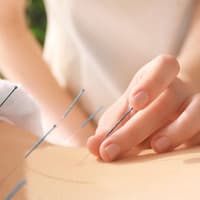
Setting the course in life
Hormones start puberty: girls begin to produce oestrogen, boys testosterone - the sexual characteristics develop. Between 40 and 60, production declines again - gradually in men, often rapidly in women - the hormones cause side effects during the menopause.
Hormones and their effect on our moods
Serotonin triggers positive emotions, while a major deficiency can lead to depression. Dopamine activates the reward center in the brain. Both happiness hormones are slowed down by a lack of oestrogen - hence the emotional chaos during puberty and the menopause. Adrenaline is released during stress and boosts the entire body.
How do hormones affect our feelings?
Great love is above all a cocktail of hormones and their effects: adrenaline, serotonin, dopamine and the bonding hormone oxytocin provide the inner high.
Clever energy suppliers
Our body needs sugar as fuel. Insulin ensures that the cells absorb sugar. Glucagon releases stored reserves from the fat cells.
Bedtime snack and alarm clock
Darkness stimulates melatonin. It makes us tired, the light hormone serotonin wakes us up again.
What hormone therapy can do
Artificially produced messenger substances are used as therapies for:
Diabetes: replacement insulin in the form of tablets or injections has been tried and tested for a long time.
Menopause: New, low-dose oestrogen and progestogen preparations are risk-free if there are no serious pre-existing conditions, such as heart disease.
Thyroid: In the case of an underactive thyroid, the missing L-thyroxine is given in tablet form and often iodine.
Cancer: Some tumor cells use hormones and their effects to grow - their production is suppressed by preparations.






